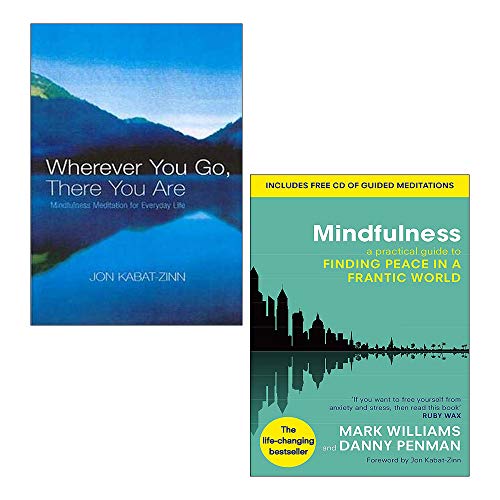
1
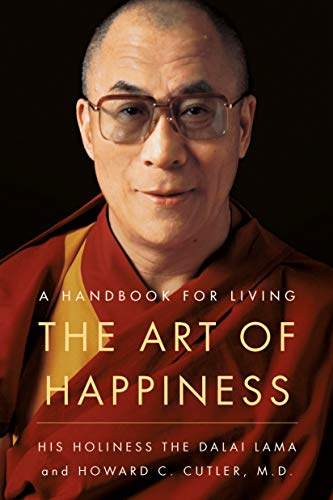
2
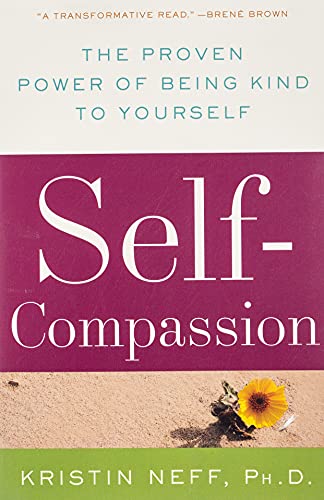
3
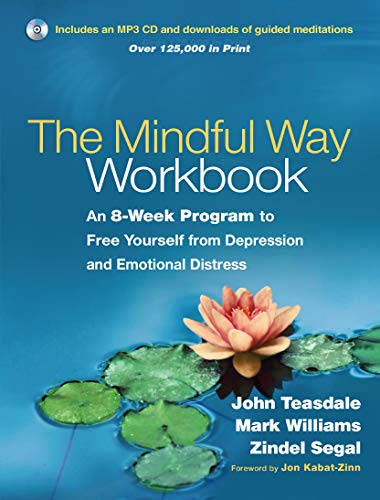
4
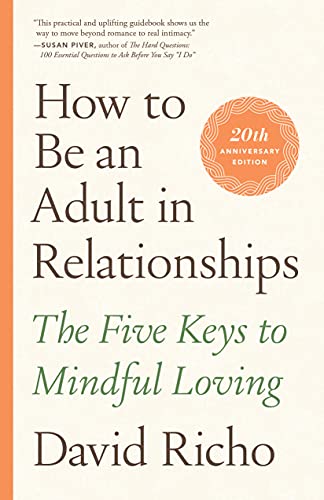
5
Mindfulness is a wellness practice that can boost feelings of happiness, resilience, and purpose.
1
Whether you're new to mindfulness or need a refresher, this book is an excellent primer of how you can apply mindfulness to your life to help you feel more present as you go through your day. "Kabat-Zinn is well known in the modern-day mindfulness world, as he is viewed as the mindfulness guru and founder of what we know to be mindfulness today," Coren says. "His book explores the core value of concentration, and that can help any beginner along their journey."
2
Nearly every time you see him, he's laughing, or at least smiling. And he makes everyone else around him feel like smiling. He's the Dalai Lama, the spiritual and temporal leader of Tibet, a Nobel Prize winner, and a hugely sought-after speaker and statesman. Why is he so popular? Even after spending only a few minutes in his presence you can't help feeling happier. If you ask him if he's happy, even though he's suffered the loss of his country, the Dalai Lama will give you an unconditional yes. What's more, he'll tell you that happiness is the purpose of life, and that the very motion of our life is toward happiness. How to get there has always been the question. He's tried to answer it before, but he's never had the help of a psychiatrist to get the message across in a context we can easily understand. The Art of Happiness is the book that started the genre of happiness books, and it remains the cornerstone of the field of positive psychology. Through conversations, stories, and meditations, the Dalai Lama shows us how to defeat day-to-day anxiety, insecurity, anger, and discouragement. Together with Dr. Howard Cutler, he explores many facets of everyday life, including relationships, loss, and the pursuit of wealth, to illustrate how to ride through life's obstacles on a deep and abiding source of inner peace. Based on 2,500 years of Buddhist meditations mixed with a healthy dose of common sense, The Art of Happiness is a book that crosses the boundaries of traditions to help readers with difficulties common to all human beings. After being in print for ten years, this book has touched countless lives and uplifted spirits around the world.
3
If you tend to be tough on yourself, this book offers action plans for how to deal with issues that may arise in our day-to-day lives, with a focus on being kinder to ourselves. "We all know we're harder on ourselves than we are on others, saying things we'd never say about other people," Gilson says. "In this book, you'll learn to notice and modify your self-critical thoughts, leaving you with more compassion for yourself and better able to treat yourself the way you treat your friends."
4
If you're ready to embrace mindfulness but need a plan to get you started, this eight-week plan may be the extra kick that you need to get started. "It will teach you to observe the relationship between your thoughts and your emotions, and make shifts in your thinking to make you less vulnerable to emotional stress," Gilson said. "Broken up into an eight-week plan, the book introduces the basics of mindfulness, and walks you through practicing and reflecting on mindfulness exercises such as slow breathing and mindful self-compassion."
5
Mindfulness practices can also be used to help improve our relationships with others, as outlined in this book by Richo. "Drawing on the Buddhist concept of mindfulness, this book explores five hallmarks of mindful loving and how they play an important role in our life, transitional times, and relationships," Coren says.

1
Whether you're new to mindfulness or need a refresher, this book is an excellent primer of how you can apply mindfulness to your life to help you feel more present as you go through your day. "Kabat-Zinn is well known in the modern-day mindfulness world, as he is viewed as the mindfulness guru and founder of what we know to be mindfulness today," Coren says. "His book explores the core value of concentration, and that can help any beginner along their journey."

2
Nearly every time you see him, he's laughing, or at least smiling. And he makes everyone else around him feel like smiling. He's the Dalai Lama, the spiritual and temporal leader of Tibet, a Nobel Prize winner, and a hugely sought-after speaker and statesman. Why is he so popular? Even after spending only a few minutes in his presence you can't help feeling happier. If you ask him if he's happy, even though he's suffered the loss of his country, the Dalai Lama will give you an unconditional yes. What's more, he'll tell you that happiness is the purpose of life, and that the very motion of our life is toward happiness. How to get there has always been the question. He's tried to answer it before, but he's never had the help of a psychiatrist to get the message across in a context we can easily understand. The Art of Happiness is the book that started the genre of happiness books, and it remains the cornerstone of the field of positive psychology. Through conversations, stories, and meditations, the Dalai Lama shows us how to defeat day-to-day anxiety, insecurity, anger, and discouragement. Together with Dr. Howard Cutler, he explores many facets of everyday life, including relationships, loss, and the pursuit of wealth, to illustrate how to ride through life's obstacles on a deep and abiding source of inner peace. Based on 2,500 years of Buddhist meditations mixed with a healthy dose of common sense, The Art of Happiness is a book that crosses the boundaries of traditions to help readers with difficulties common to all human beings. After being in print for ten years, this book has touched countless lives and uplifted spirits around the world.

3
If you tend to be tough on yourself, this book offers action plans for how to deal with issues that may arise in our day-to-day lives, with a focus on being kinder to ourselves. "We all know we're harder on ourselves than we are on others, saying things we'd never say about other people," Gilson says. "In this book, you'll learn to notice and modify your self-critical thoughts, leaving you with more compassion for yourself and better able to treat yourself the way you treat your friends."

4
If you're ready to embrace mindfulness but need a plan to get you started, this eight-week plan may be the extra kick that you need to get started. "It will teach you to observe the relationship between your thoughts and your emotions, and make shifts in your thinking to make you less vulnerable to emotional stress," Gilson said. "Broken up into an eight-week plan, the book introduces the basics of mindfulness, and walks you through practicing and reflecting on mindfulness exercises such as slow breathing and mindful self-compassion."

5
Mindfulness practices can also be used to help improve our relationships with others, as outlined in this book by Richo. "Drawing on the Buddhist concept of mindfulness, this book explores five hallmarks of mindful loving and how they play an important role in our life, transitional times, and relationships," Coren says.
© Five Books 2026